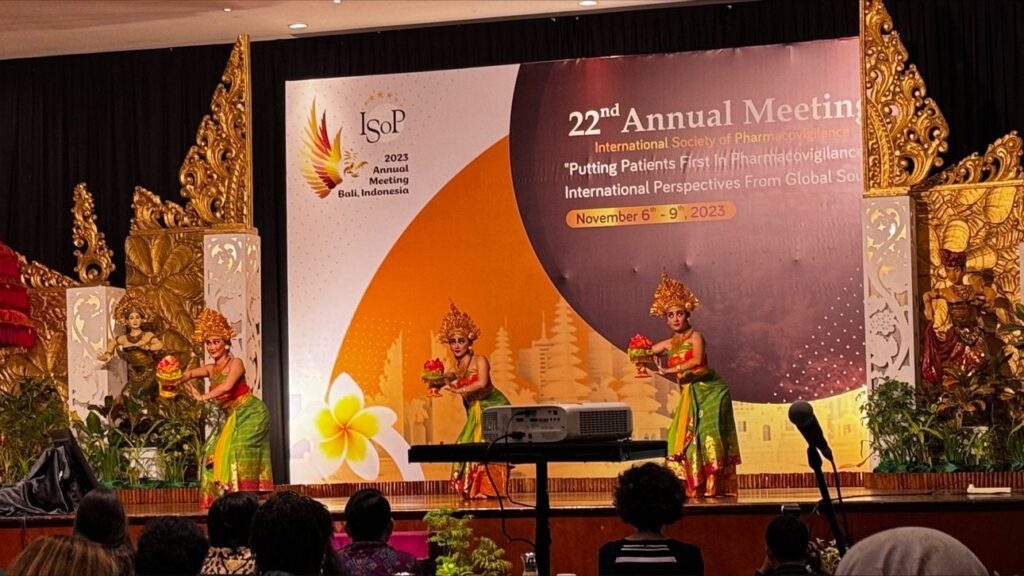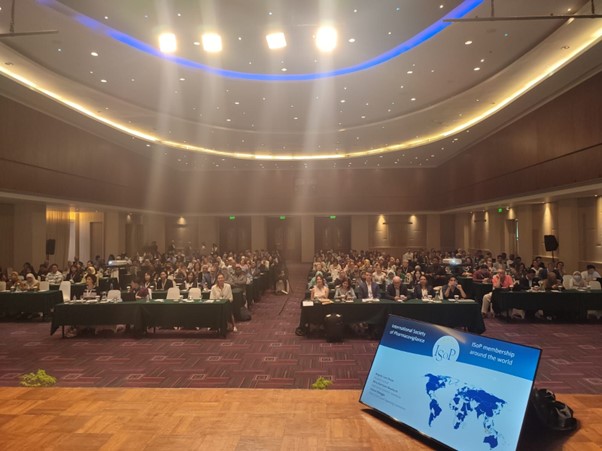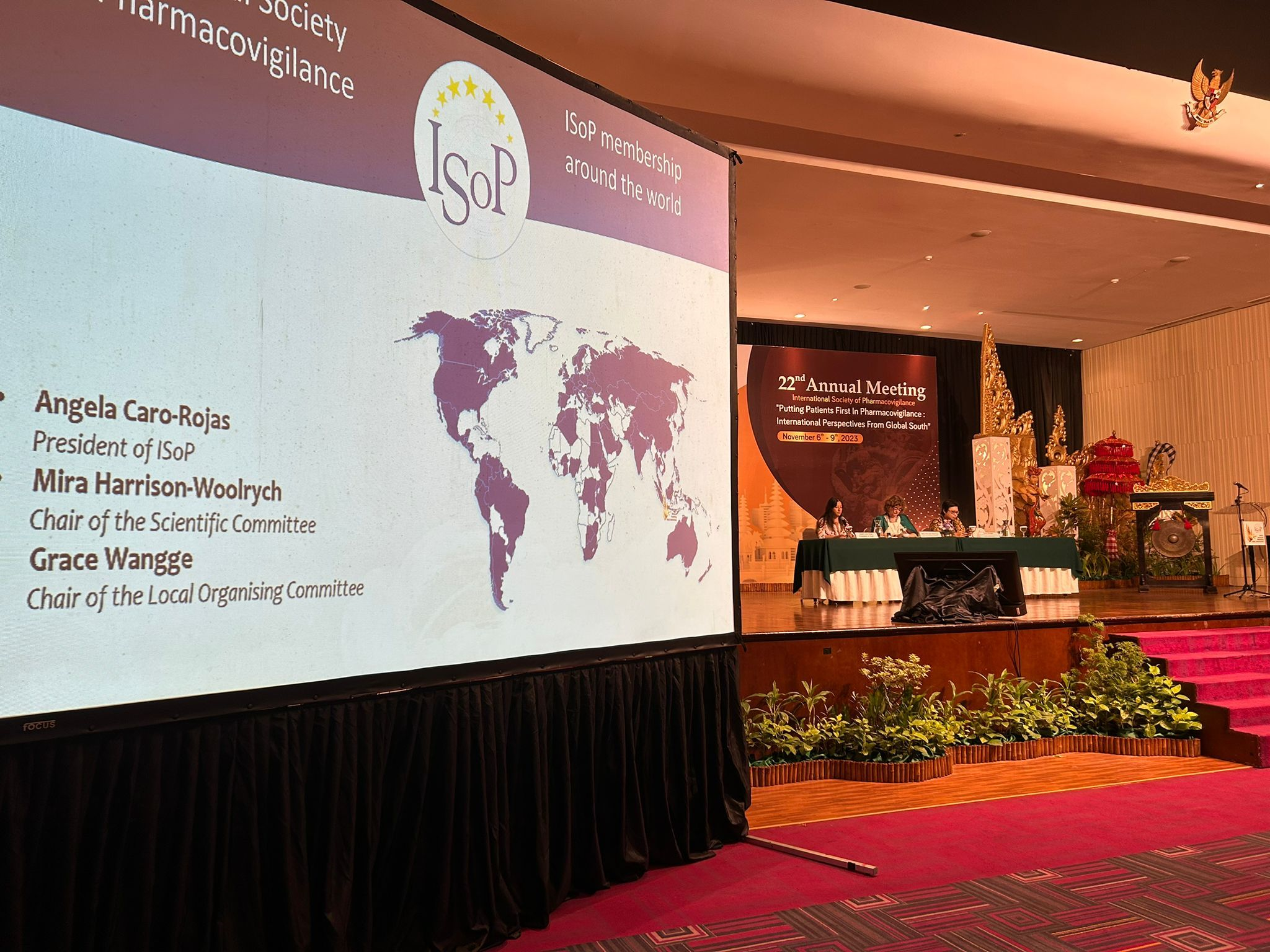Global congresses, such as the International Society of Pharmacovigilance (ISOP) Annual Meeting, are a great opportunity to meet with other QPPVs, hear from both regulators, academics and consulting stakeholders who design and enhance regulatory frameworks, in order to continually improve patient safety, and the benefit risk assessment process for therapeutic products.
Earlier this month, Commercial Eyes’ Patient Safety Manager, Duncan Maher participated in a range of workshops and networking events to prepare and design for the future of Patient Safety and Vigilance at the 2023 Annual Meeting in Bali.
In this article, Duncan shares some of the key themes and insights from this important global meeting.

Australia Leading the Charge
Australia was incredibly well represented by industry speakers, academics and the Australian regulatory authority, the Therapeutic Goods Administration (TGA) at ISOP. For a country that is 55th in global population, our presence was strong, which shows that in the PV space, a relatively small number of PV professionals can make a meaningful impact on the global PV environment and are seen as leaders in the space.
Australia is heavily involved in many Patient Safety leading initiatives internationally, and many key areas were discussed through the course of the conference, with global vaccine network involvement, signal detection work from a Health Authority perspective, professional development and certification in the QPPV space, as well as a brilliant talk on protecting patients from harm and continuous improvement in the advancement of patient communication, engagement and education.
Importance of Spontaneous Reports
COVID showed what was possible for safety reporting worldwide. Systems adapted; public awareness was at an all-time high for PV reporting. Since then, we’ve somewhat returned to business as usual, and the risk for delayed identification of important safety information that impacts patients is of the greatest importance.
A common theme emerged that spontaneous reports are overrepresented in the signal detection process, meaning that education and communication around these reports are made timelier by high quality, spontaneous reporting of adverse events.
The Future is Digital
The increase in the volume of data globally, and the quality standards required is stretching current human capacities for PV work. One solution of course is to increase the workforce headcount, but the more sustainable course of action is for sponsor companies to continue to heavily invest in digital solutions for PV. Whether it’s focused on reading of information, automated processing or handling of highly manual processes, the change is likely to be difficult for those who are slow adopters.
Companies like Stethy, Pubhive, PV.app, as well as global tech vendors such as Oracle and Appian are all focusing and prioritising the digital revolution within the pharmaceutical industry. By being at the forefront of this adoption of digital advancements, sponsors will give themselves the best chance to make timely decisions on the benefit risk assessments for their products.
The Expertise in Qualified Person for Pharmacovigilance
Long gone are the days where the local QPPV role was an adjunct role to another function at sponsor companies. To continue with the requirements for this role, many regions are considering the definition of what “Qualified” entails, when it comes to PV. The introduction of certification appears to be on the horizon, with knowledge assessments, examination and recertification likely to come into effect in the near future.
With 66 countries regulating the provision of a local QPPV, this could have significant implications for the regulatory expectations for the QPPV role and highlights the importance of having a knowledgeable and dedicated resource to oversee your PV requirements.
I look forward to continuing these important conversations with my QPPV colleagues both in Australia and globally.

Enhancing Patient Safety Through Comprehensive PV Services & QPPV Support by Commercial Eyes
At Commercial Eyes, we provide a comprehensive PV services to sponsor companies that includes acting as QPPV or Deputy QPPV. We have participated in 10 TGA inspections and are up-to-date with the TGA expectations from the QPPV. As part of our PV service, we are audited by over 30 companies each year, with no critical findings. Acting as QPPV and Deputy QPPV gives our clients peace of mind that the activities requiring QPPV oversight are delivered effectively and efficiently, saving both headcount and the potential headache of findings by the TGA.
To learn more about how Commercial Eyes can support and improve your Patient Safety system and activities, including providing you with essential QPPV or Deputy QPPV representation, or advising on TGA Inspection readiness, please contact Lorenza Ricacho, Regional Head of Patient Safety at [email protected].
